Enterprise B2B eCommerce Platforms Comparison: Comprehensive Guide for 2020

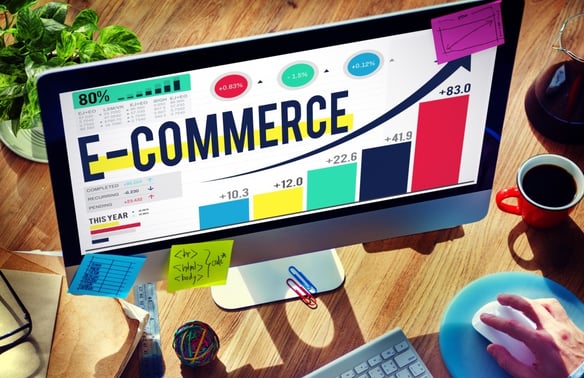
These days, over 89% of B2B employees use the internet when conducting research related to their company, and that includes business buyers. In fact, more than half of B2B customers choose to purchase digitally, so it is not surprising that online sales and the online customer experience are the main areas of brand differentiation for 2020 and beyond.
As a consequence, B2B eCommerce spending is growing and investment in business tools is increasing - all driving up B2B eCommerce platform offerings.
Navigating B2B eCommerce offerings and picking the right solution is overwhelming, so we compiled a comprehensive guide to help you select the best solution for your needs. In this post, we will explore the key features to consider and list the most popular B2B eCommerce platforms on the market today.
Jump to a section:
- Key specs to compare
- OroCommerce
- HCL Commerce
- SAP Commerce Cloud
- NetSuite SuiteCommerce
- Salesforce Commerce Cloud
- Magento
Key Specifications to Compare
There are a number of things to know and look for when comparing your solution. You need to consider its ecosystem, its ability to work with your technology stack and adapt to your business needs over time. Here is what you should pay specific attention to:
Integration
It’s important that your solution can communicate with the required corporate systems. Unless you are looking to transform all your systems at once, your eCommerce platform must work seamlessly with the existing ERP, CRM, PIM, eProcurement, warehousing fulfillment, or any other platform you are using. Go over APIs, integration partners and talk to consultants that have experience integrating the system you are considering.
Mobile experience
With more and more business customers searching for products on their mobile devices, mobile-friendly sites are not another bonus or nice-to-have. Unlike their B2C counterparts, B2B customers expect not only seamless shopping but also admin experiences on all devices. This means forms with auto-complete and call to action buttons that appear in the right place and work as expected.
Deployment models
Many eCommerce platforms offer B2B brands a range of deployment models such as a hosted, on-premise or hybrid. It’s crucial that businesses select a deployment method that aligns and scales with their long-term objectives. Businesses that don’t carefully consider their own requirements can end up with an eCommerce system that’s ineffective. A bad fit won’t scale with their business or deliver on promised results.
User friendly interfaces
A good B2B eCommerce software solution is built for the B2B customer, the back-office staff, taking into account all the roles and permissions they require. When testing out your platform, ensure that the desired commands and functions can be easily found and called up. Look for the ability to design landing pages, include customer testimonials and related or popular product lists - social proof can be helpful in building trust in the eyes of customers.
Flexible pricing and ordering
B2B sellers often have unique pricing requirements for passing on to their business customers. This can include minimum order quantities, pricing tiers, discounts or packages designed for buying personas. A customizable pricing structure will give you the freedom to segment customers and modify pricing strategies over time. Some B2B customers also appreciate one-click ordering and automatic renewals of previous orders.
Detailed product content
Most B2B buyers require good self-service options and informative content to help them come to a purchase decision. In fact, B2B customers are overwhelmingly likely to buy from brands they consume content from. Therefore, investing in an eCommerce platform with the ability to host educational material, blog posts, detailed product descriptions, specification sheets, multimedia, and more is essential.
Best B2B eCommerce Platforms List in 2020
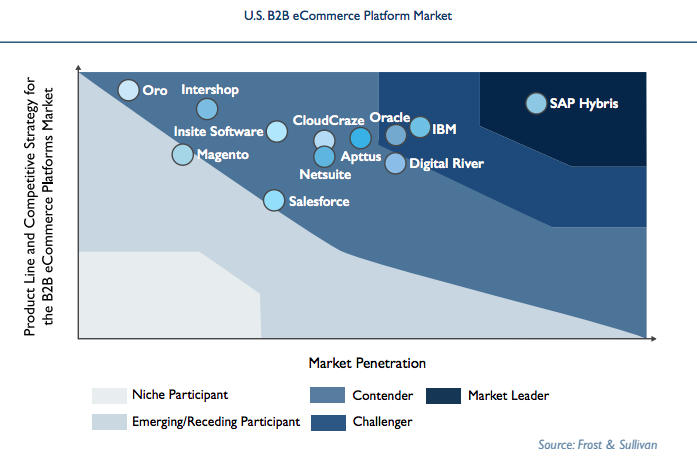
OroCommerce
|
Background |
Founded and developed by the team behind Magento |
|
Framework |
Open source |
|
Deployment |
On-premise, web-based, cloud |
|
Support mobile |
Yes, front-end and back-end |
|
Average time to market |
4 months |
|
Advantages |
|
|
Disadvantages |
|
|
Ecosystem & Integrations |
Built-in CRM integration. Oro offers technical partners, solutions partners, a developer ecosystem, community and marketplace. |
|
Sample Customers |
Animal Supply, GameWorld, TruPar, Samuel Hubbard |
|
Perfect for |
SME to large enterprises in retail, manufacturing, distribution, wholesale. |
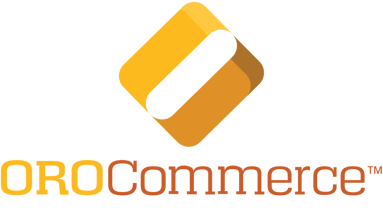
OroCommerce is one of the few B2B eCommerce solutions that were designed from the ground up specifically for all types of B2B businesses. Founded by Magento’s executive team, it’s built with time-tested technologies and is available on-premise, cloud, and works on any mobile device (back-end and front-end). OroCommerce is built with customization in mind, boasting a powerful API allowing for headless setup and other integrations. The partner, developer and community ecosystems are large - allowing you to develop applications in line with your needs. It’s ideal for distributors, manufacturers, wholesalers, and brands of all sizes.
HCL Commerce (IBM WebSphere)
|
Background |
Acquired by HCL in late 2018 from IBM’s WebSphere eCommerce division. |
|
Framework |
Proprietary |
|
Deployment |
On-premise, web-based, hybrid |
|
Support mobile |
Yes |
|
Approximate time to market |
6 months |
|
Advantages |
|
|
Disadvantages |
|
|
Ecosystem & Integrations |
GSI (global systems integrator) and global partner for IBM, as well as SAP, Oracle and IBM partnerships. |
|
Sample Customers |
CEWE, J.J. Keller, Dahl Sverige AB, Terranova, Lindt |
|
Perfect for |
SME to large enterprises in retail, manufacturing, business services, consumer services. |
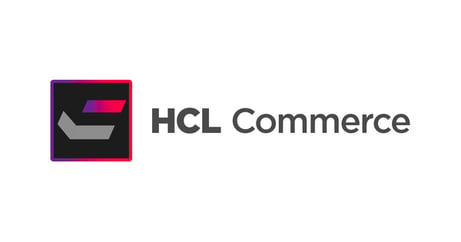 HCL Commerce offers flexible deployment options, including on-premise, cloud-based, hybrid, and headless. HCL Commerce makes use of IBM’s ecosystem of tools including the WebSphere Portal and other enterprise web content management tools. However, HCL’s recent acquisition of IBM tools leaves some uncertainty regarding the direction of these products. Nevertheless, HCL Commerce is a solid product with numerous features important for B2B eCommerce businesses that require multichannel capabilities. Its customers are spread across wide verticals in many industries and countries.
HCL Commerce offers flexible deployment options, including on-premise, cloud-based, hybrid, and headless. HCL Commerce makes use of IBM’s ecosystem of tools including the WebSphere Portal and other enterprise web content management tools. However, HCL’s recent acquisition of IBM tools leaves some uncertainty regarding the direction of these products. Nevertheless, HCL Commerce is a solid product with numerous features important for B2B eCommerce businesses that require multichannel capabilities. Its customers are spread across wide verticals in many industries and countries.
SAP Commerce Cloud
|
Background |
SAP Commerce Cloud was known as SAP Hybris Commerce. It acquired Qualtrics to augment surveying and experience management functions of Commerce Cloud. |
|
Framework |
Proprietary |
|
Deployment |
On-premise, web-based, cloud |
|
Support mobile |
Yes |
|
Approximate time to market |
9 months |
|
Advantages |
|
|
Disadvantages |
|
|
Ecosystem & Integrations |
Prebuilt integrations with SAP S/4HANA, SAP C/4HANA, and numerous other SAP applications. |
|
Sample Customers |
Bridgestone, Levi’s, P&G, Nikon, Lufthansa |
|
Perfect for |
SME to large enterprises in hospitality, manufacturing, wholesale. |
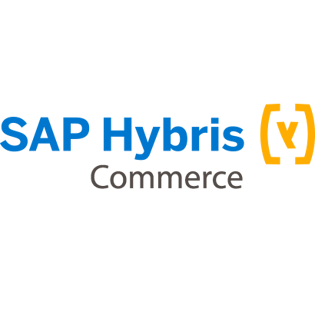 Like Oro, SAP Commerce Cloud places importance on seamless sales and shopping experiences by merging its eCommerce, CRM, and powerful content management capabilities. SAP Commerce Cloud offers enterprise-grade customization options and can be deployed in the cloud, on-premise or hybrid fashion. SAP offers quote-based licensing plans which are built for large businesses. This means that the cost of integrations, development, and consultations are higher than some are prepared to pay.
Like Oro, SAP Commerce Cloud places importance on seamless sales and shopping experiences by merging its eCommerce, CRM, and powerful content management capabilities. SAP Commerce Cloud offers enterprise-grade customization options and can be deployed in the cloud, on-premise or hybrid fashion. SAP offers quote-based licensing plans which are built for large businesses. This means that the cost of integrations, development, and consultations are higher than some are prepared to pay.
NetSuite SuiteCommerce
|
Background |
Oracle acquired Grapeshot for contextual intelligence and to complement its NetSuite services and apps. |
|
Framework |
Proprietary |
|
Deployment |
Web-based, cloud |
|
Support mobile |
Yes |
|
Approximate time to market |
9 months |
|
Advantages |
|
|
Disadvantages |
|
|
Ecosystem & Integrations |
Native integrations with NetSuite family of products including accounting, order management, ERP, CRM, and more. |
|
Sample Customers |
Vivobarefoot, Quicken, The Second City, Lovesac |
|
Perfect for |
SME to large enterprises in hospitality, retail, construction, manufacturing. |
 NetSuite SuiteCommerce is an excellent cloud-based eCommerce platform for small to medium-sized businesses. While it offers native integrations between other NetSuite products such as ERP, CRM, PSA, it also means that many features are interlinked between these systems. SuiteCommerce also supports B2B, B2C as well as B2B2C and is particularly well-suited for retail, software and service-related industries.
NetSuite SuiteCommerce is an excellent cloud-based eCommerce platform for small to medium-sized businesses. While it offers native integrations between other NetSuite products such as ERP, CRM, PSA, it also means that many features are interlinked between these systems. SuiteCommerce also supports B2B, B2C as well as B2B2C and is particularly well-suited for retail, software and service-related industries.
Salesforce Commerce Cloud
|
Background |
Salesforce acquired Demandware and CloudCraze for their B2B eCommerce solution. |
|
Framework |
Proprietary |
|
Deployment |
Web-based, cloud |
|
Support mobile |
Yes |
|
Approximate time to market |
6 months |
|
Advantages |
|
|
Disadvantages |
|
|
Ecosystem & Integrations |
The Salesforce ecosystem gives you access to integrations, a large community, and development resources. |
|
Sample Customers |
Puma, Boggi Milano, Adidas, POC, American Golf |
|
Perfect for |
SME to large enterprises in hospitality, retail, manufacturing. |
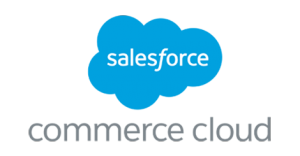
The Salesforce Commerce Cloud B2B solution integrates with the Salesforce family of products including the CRM, Marketing Cloud, Sales Cloud, Order Management system, among others. This allows Salesforce to support many business models, order fulfillment scenarios and give you a connected view of customers. Salesforce also offers a large community and third-party integrations that can address virtually every business need.
Adobe (Magento)
|
Background |
Adobe acquired Magento in 2018 as part of its eCommerce push with their cloud offerings. |
|
Framework |
Open Source |
|
Deployment |
On-premise, web-based, cloud |
|
Support mobile |
Yes |
|
Approximate time to market |
5 months |
|
Advantages |
|
|
Disadvantages |
|
|
Ecosystem & Integrations |
Magento offers a strong API, developer community, training and consulting partners. |
|
Sample Customers |
HP, PostNL, Tile Giant, Yakima, Rebel Athletic |
|
Perfect for |
SME to large enterprises in retail, manufacturing, construction. |
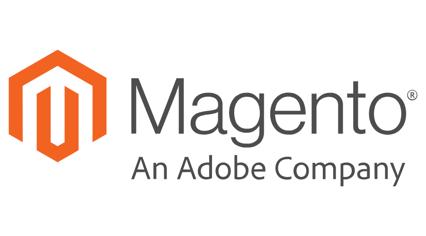 With over 240,000 merchants using their platform, Magento is a leading eCommerce provider. They offer an array of extensions, training, consulting and integrations. Depending on the amount of customizations you choose to implement, the cost of ownership can climb quickly. While Magento is not the best solution for those looking for B2B-focused features, it remains a solid choice for businesses the world over.
With over 240,000 merchants using their platform, Magento is a leading eCommerce provider. They offer an array of extensions, training, consulting and integrations. Depending on the amount of customizations you choose to implement, the cost of ownership can climb quickly. While Magento is not the best solution for those looking for B2B-focused features, it remains a solid choice for businesses the world over.
Conclusion
As the B2B eCommerce industry grows, investing in your platform isn’t a question of if, but when. The breadth of B2B eCommerce platforms available out there means that carefully weighing the strengths and weaknesses will take more time and company resources.
When picking the solution right for you, look beyond your immediate needs and think years ahead. Consider your company growth, budget, and don’t forget to keep track of technological trends and how your customers may react to them.
